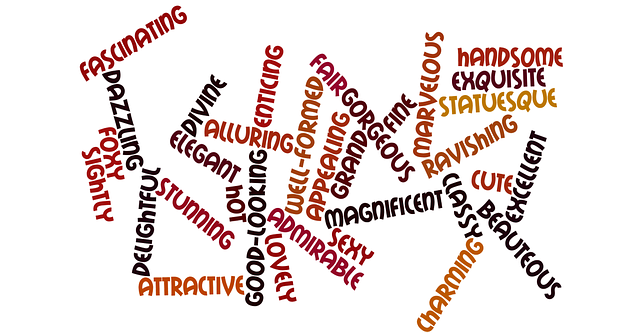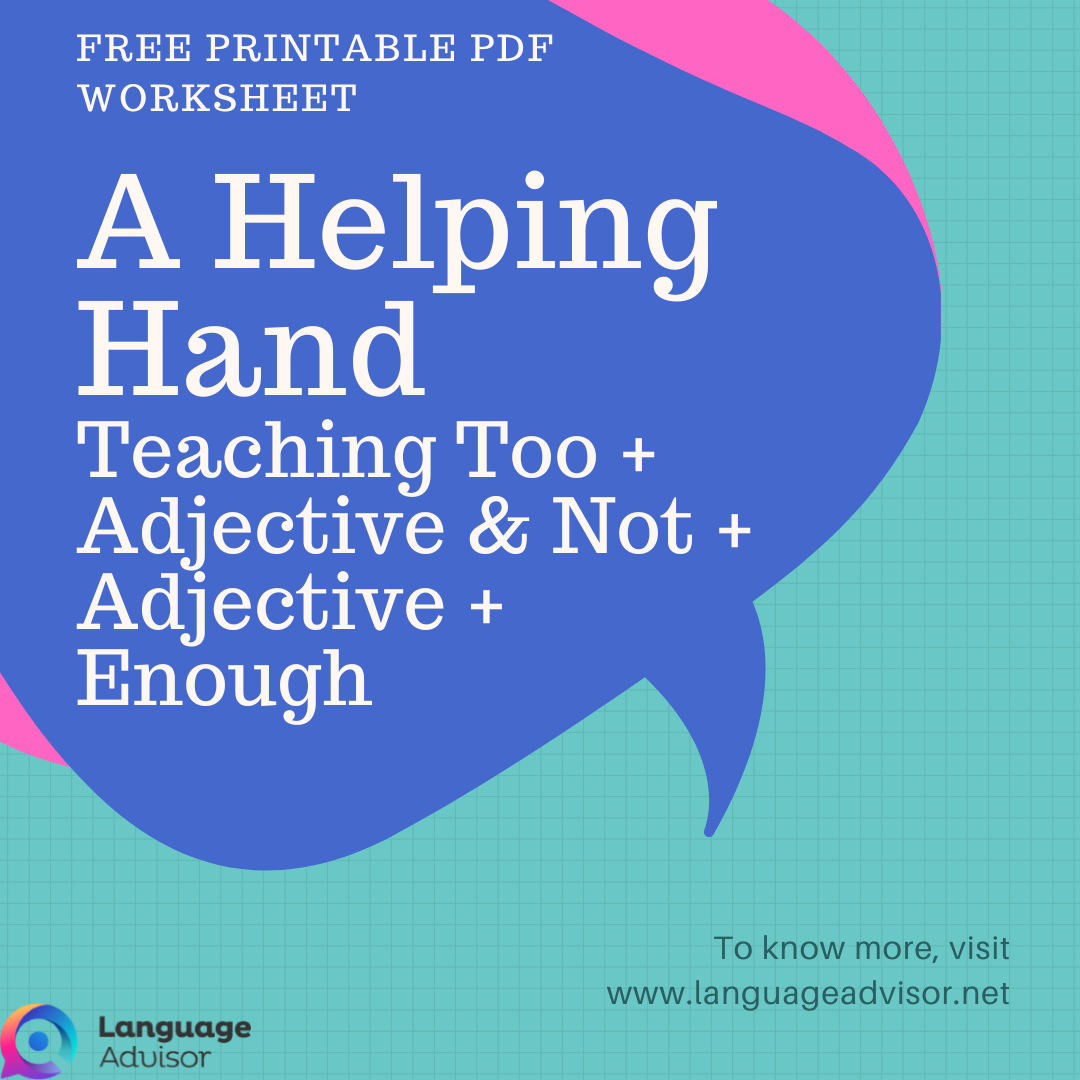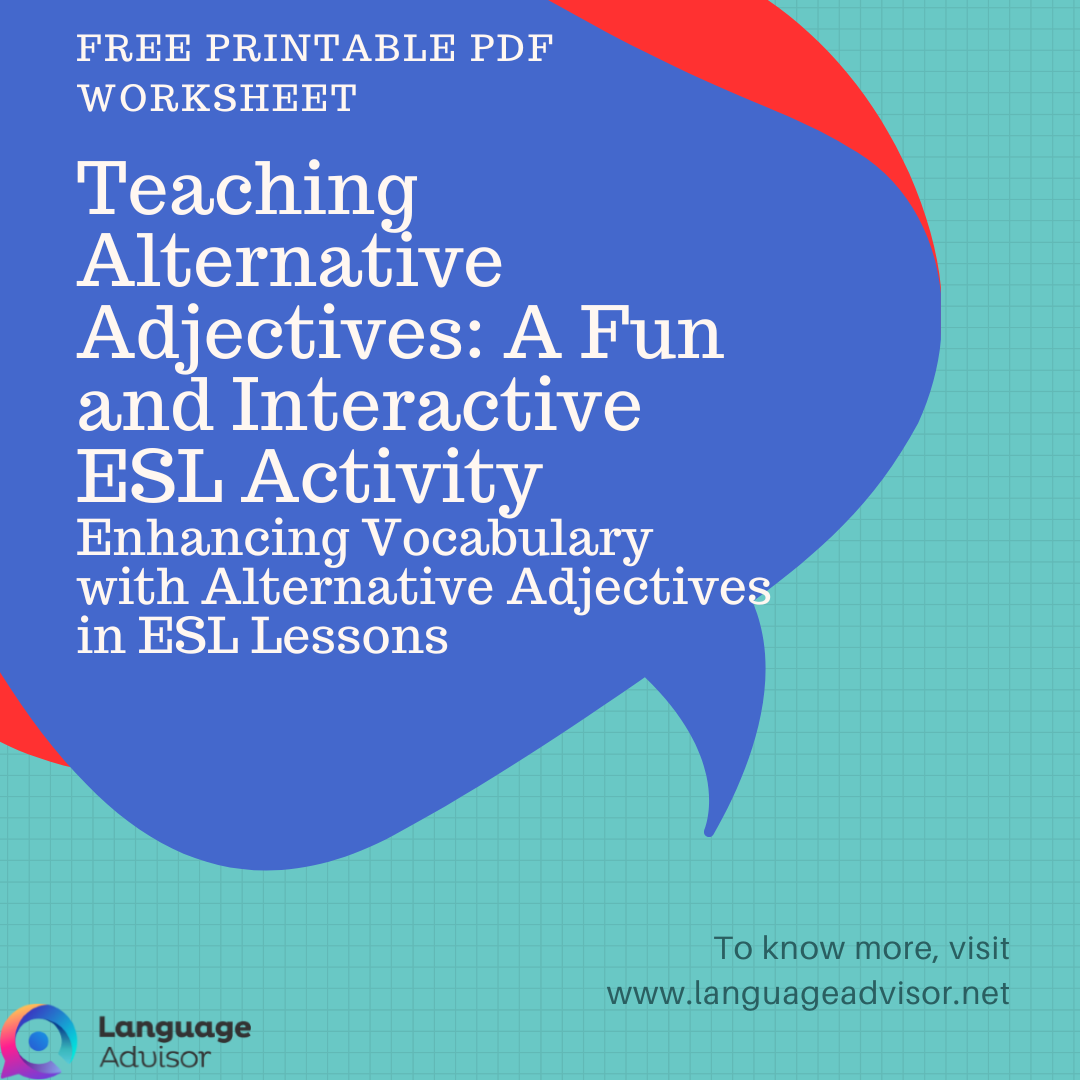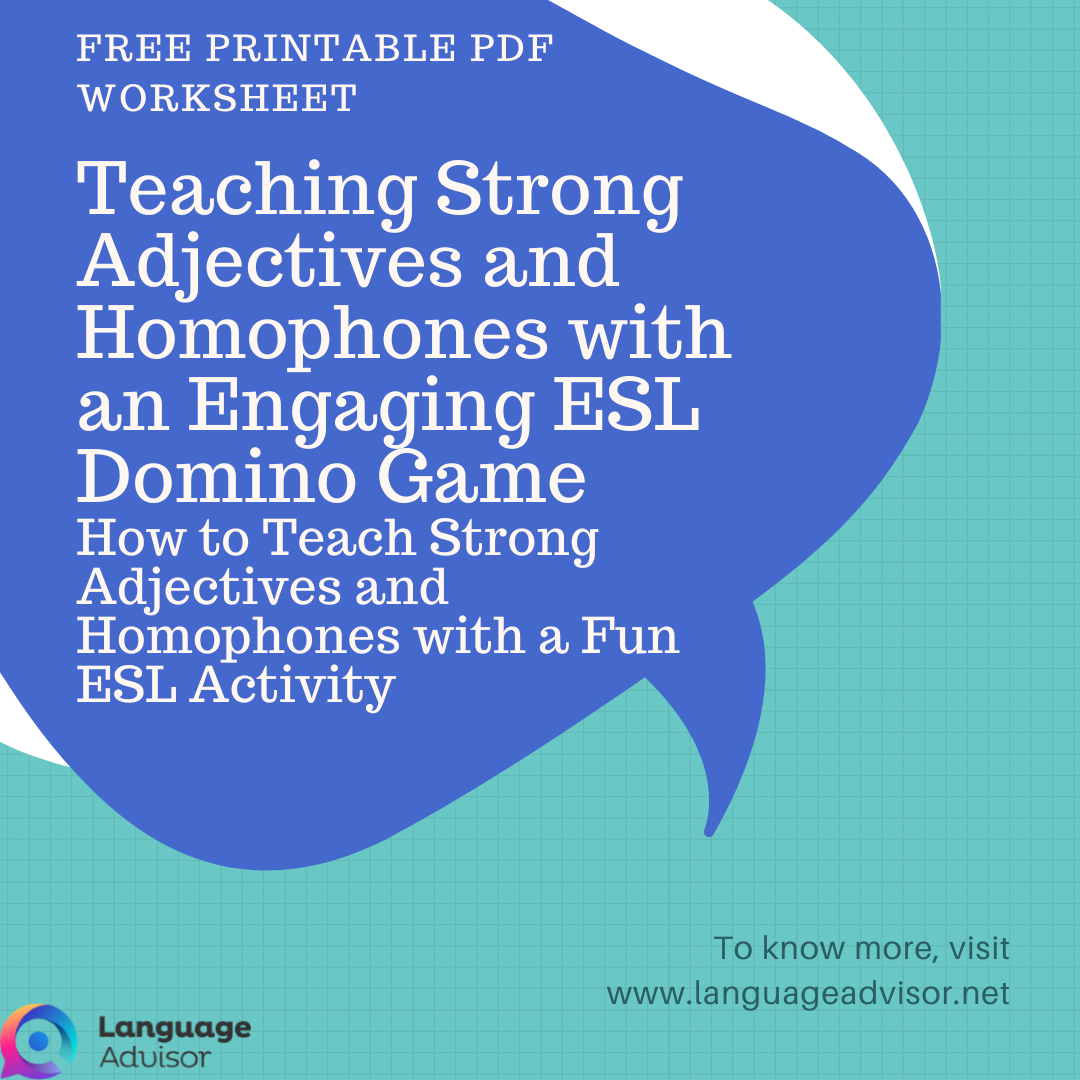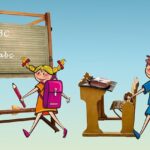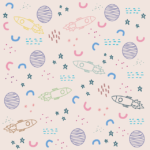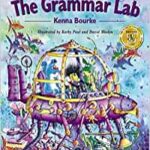Three fun games to learn the adjectives. Grammar games and activities to learn English adjectives for teenagers and adults
Three fun games to learn the adjectives
Three fun games to learn the adjectives: Word Chains 1
- Levels of Difficulty: Beginner, Elementary
- Age: Teenagers, Young Adults, Adults
- Description: Speaking Game
- Function: Describing Nouns in context
Instructions:
For this rotation game, one student thinks of or identifies a noun either in the immediate environment or in some other place (perhaps a specific place cued by the teacher). The following student then attempts to describe the noun by inserting an appropriate adjective.
For example:
- Teacher: This is a school.
- Student 1: This is a big school.
- Student 2: That is a pencil.
- Student 3: That is a red pencil.
- Student 4: These are pants.
- Student 5: Those are blue pants.
- Student 6: That is a window.
- Student 7: That is a tall window.
This game is good for describing nouns appropriate for a given context and adjectives that accurately describe them, but it also allows for other grammar elements to be incorporated, for example demonstratives, articles and plural markers.

Three fun games to learn the adjectives: Word Chains 2
- Age: Teenagers, Young Adults, Adults
- Levels of Difficulty: Beginner, Elementary
- Description: Speaking Game
- Function: Appropriate nouns for adjectives
Instructions:
This game is similar to Word Chains 1, except the adjective is named first rather than the noun, creating a challenge of locating appropriate nouns that could feasibly combine with the specified adjective. This is a little decontextualized and may require students’ to draw on general/world knowledge.
For example:
- Teacher: Wonderful.
- Student 1: It’s a wonderful game.
- Student 2: Beautiful.
- Student 3: She’s a beautiful girl.
- Student 4: Tall.
- Student 5: He’s a tall basketball player.
- Student 6: Ugly.
- Student 7: It’s an ugly monster
It may be a good idea not to be too fussy about these adjective-noun combinations, as appropriateness can be somewhat subjective and it is important to let the students be creative with the language when they have the urge to do so.

Guess The Riddle
- Levels of Difficulty: Beginner, Elementary
- Age: Teenagers, Young Adults, Adults
- Description: Speaking Game
- Function: Adjectives for riddle clues
Instructions:
Students think of an animal, object or person. Each student then gives clues to a partner using adjectives and counting how many clues the partner needs to guess the answer (in this game, the less tries the better, as it indicates that adjectives selected for clues were helpful and accurate). Try to ensure that students provide at least two but no more than three adjectives in the clues to make them more helpful.
For example:
- Student A: It’s small and cute.
- Student B: Is it a puppy?
- Student A: No. It’s furry and soft.
- Student B: Is it a kitten?
- Student A: Yes, it is

If you want to practice more with the adjectives, here are some more activities:
-
Test Your Knowledge of Adverbs and Adjectives
-
What Do People Do for a Living?
-
A Helping Hand
-
The Journey: A Creative ESL Activity for Descriptive Writing
-
Teaching Alternative Adjectives
-
Teaching Strong Adjectives and Homophones
-
Teaching Adjectives of Size, Shape, and Colour
-
Make Writing Fun: The Pen Friend Letter Activity
-
Expanding Vocabulary with Opposites


